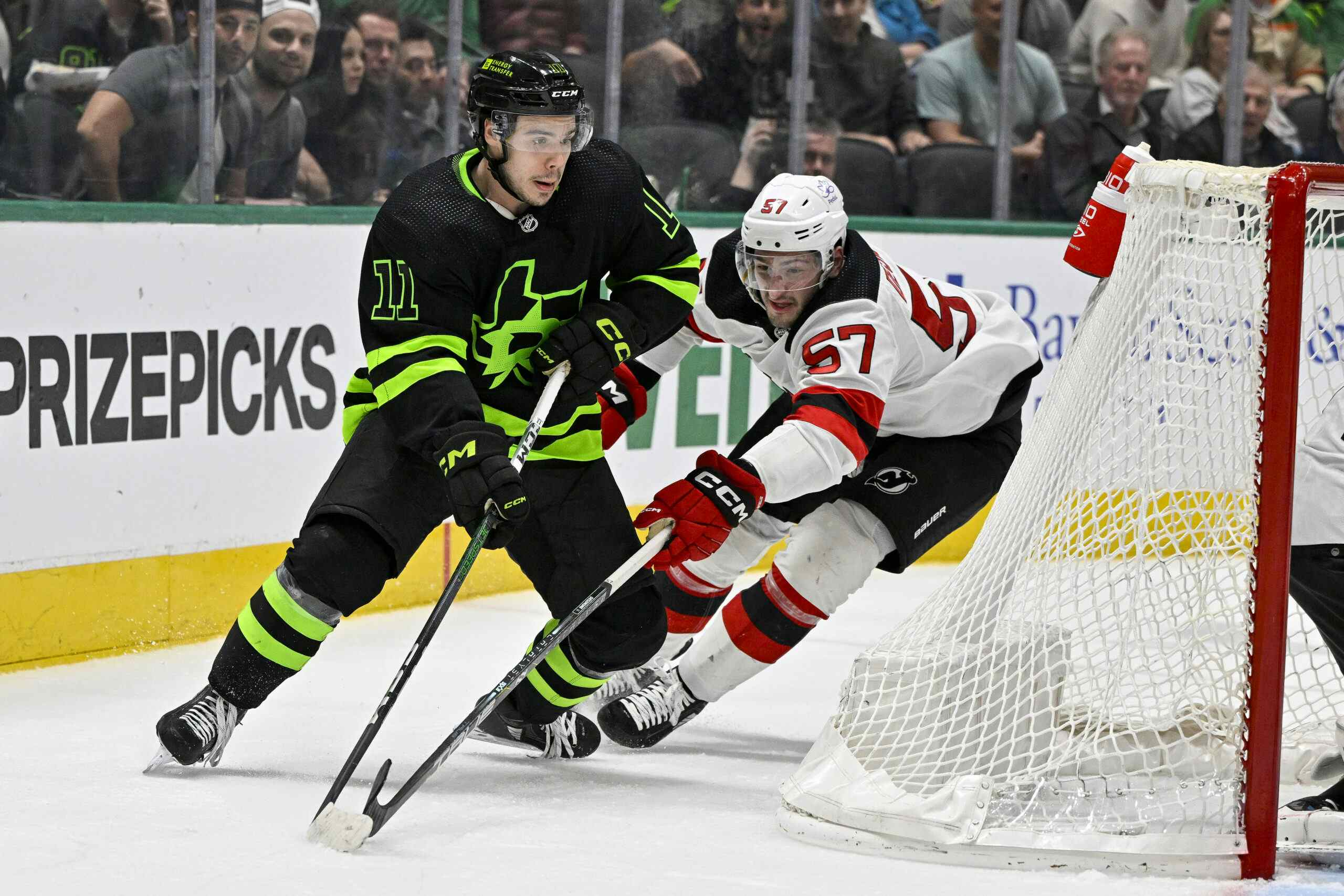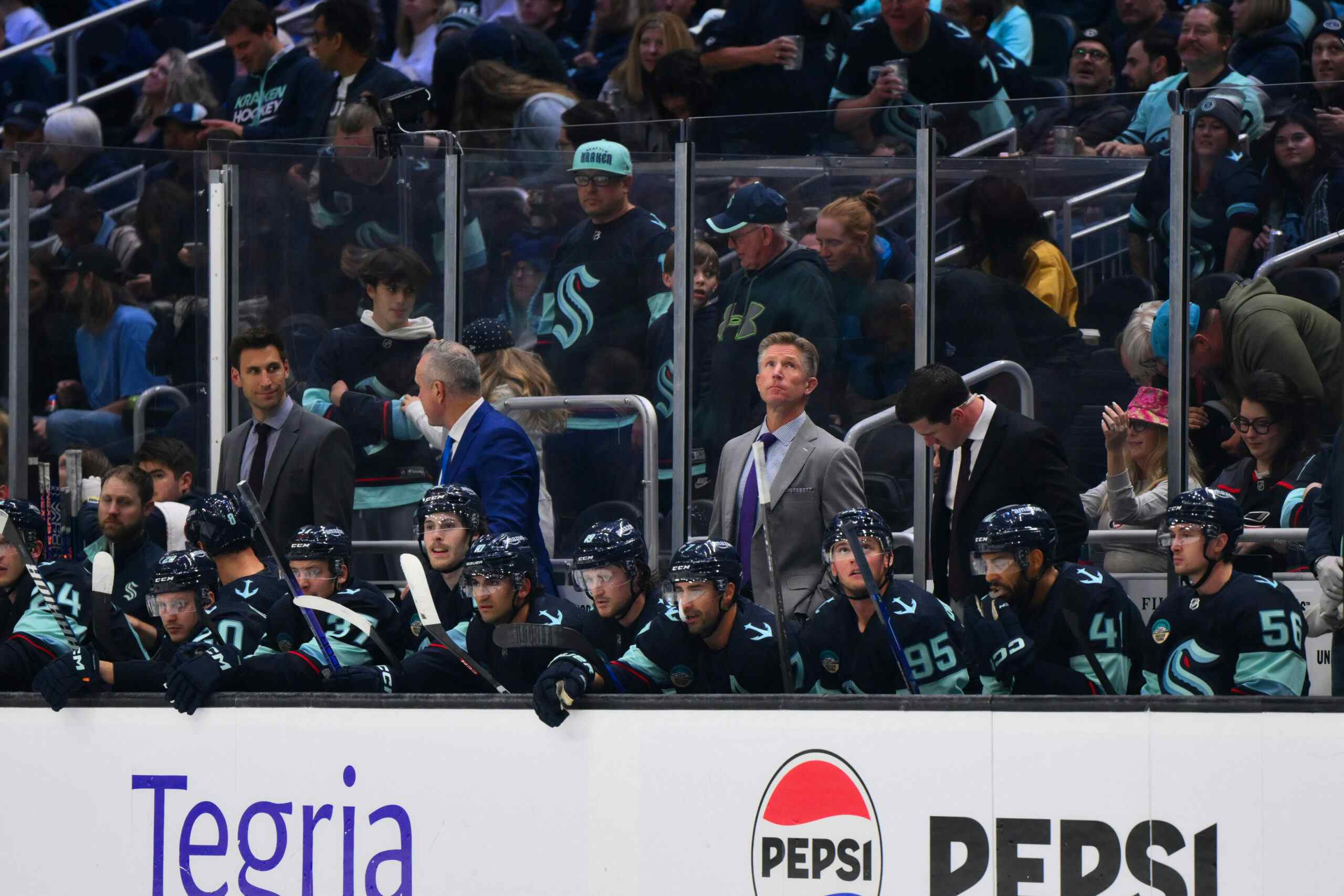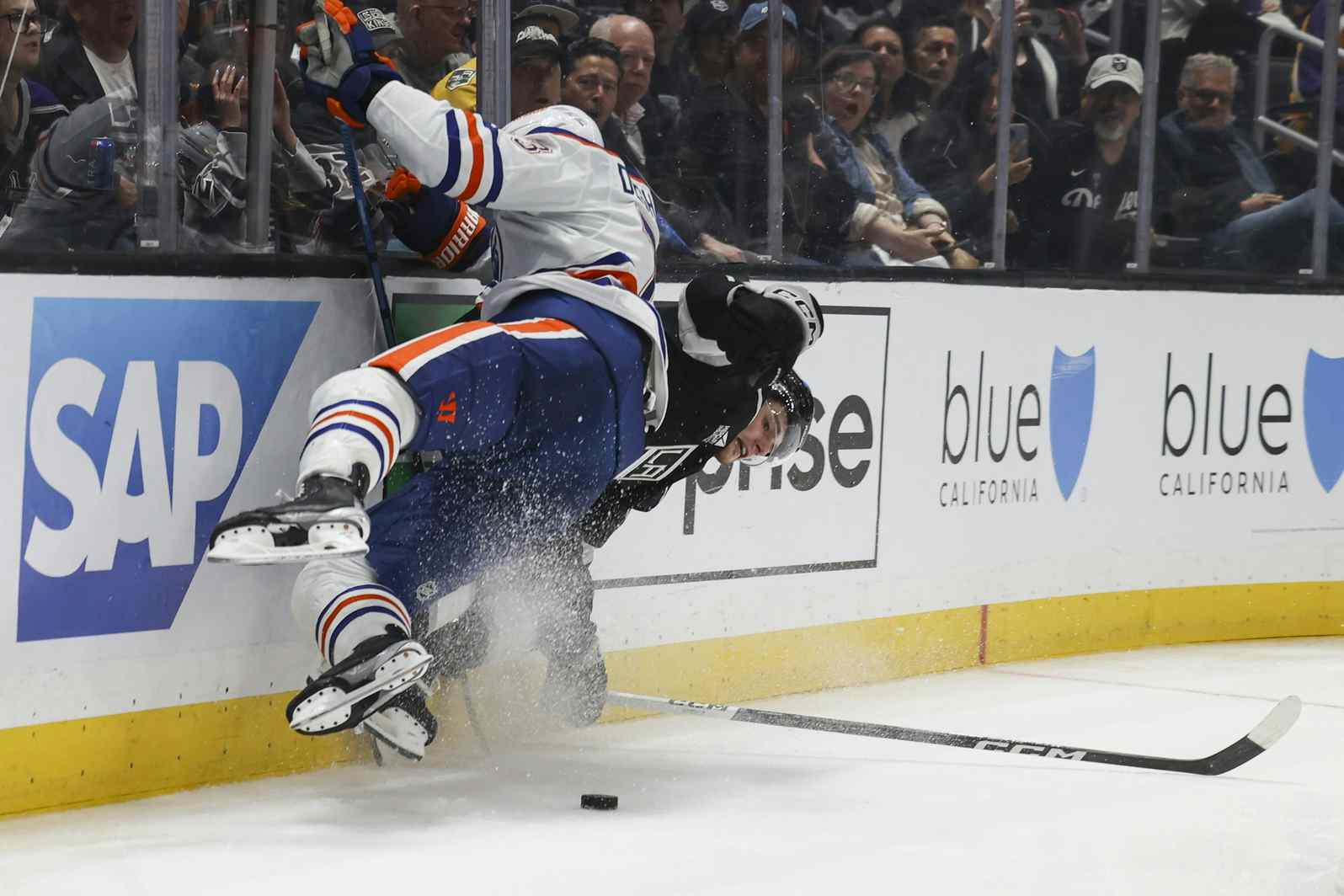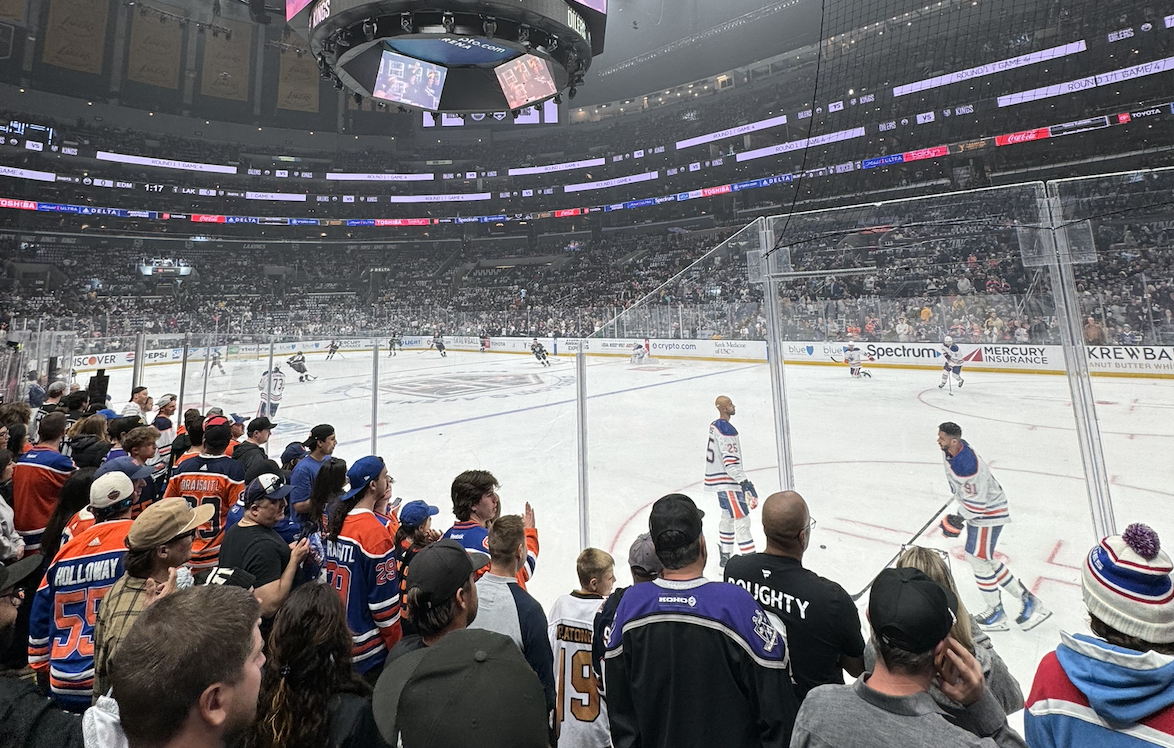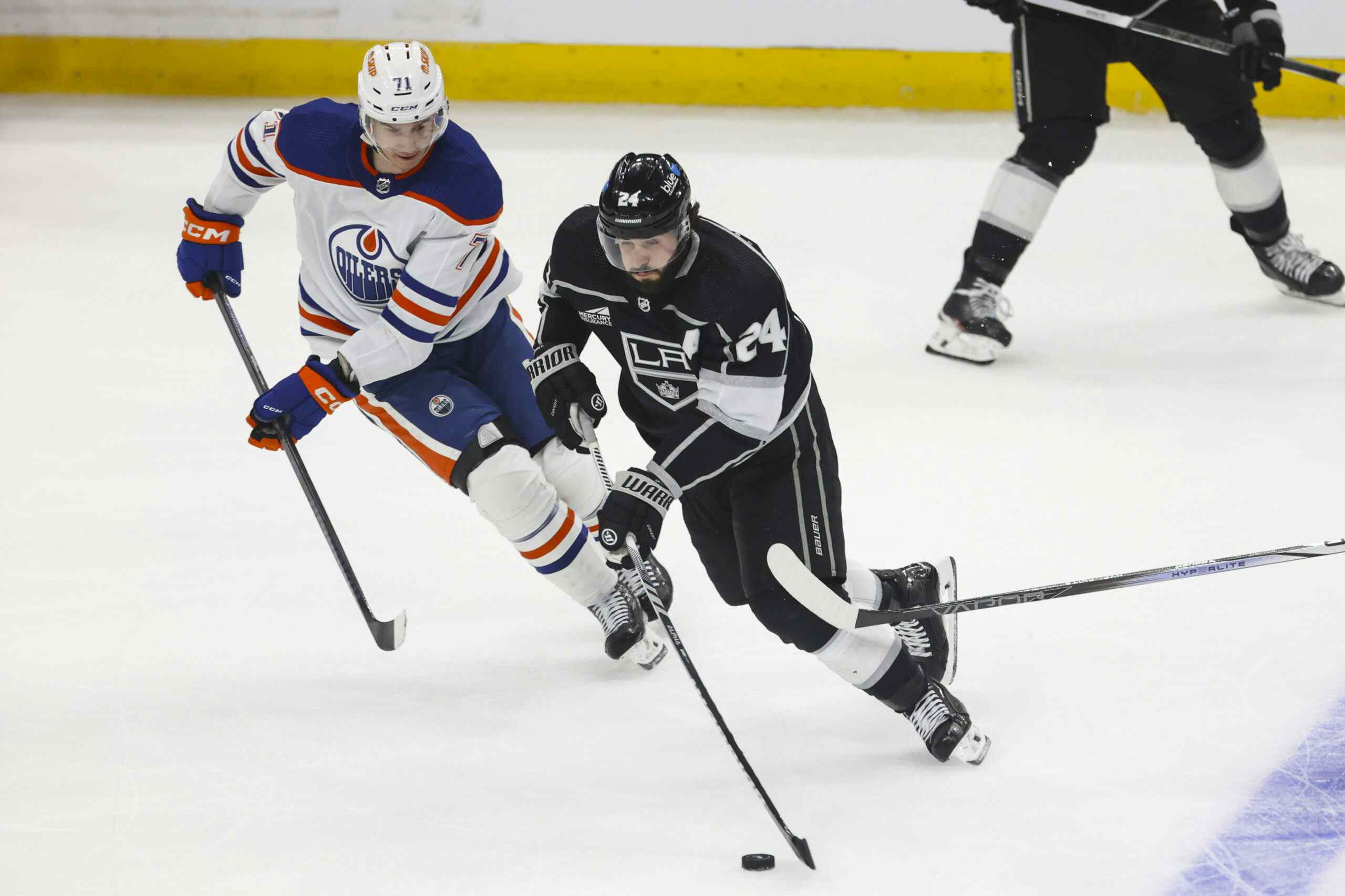LOWE: ON LEADERSHIP, HIERARCHY AND THE LOTTERY
By Jason Gregor
12 years ago
Last week I caught up with Kevin Lowe and got his thoughts on being GM at the World Championships, picking Ryan Nugent-Hopkins, winning the lottery, the right time for the kids to become leaders and the hierarchy of the Oilers.
JG: You’re the GM of the World Championships, but you’ve got around five assistant GMs. How does it work with that many guys?
KL: It’s a good setup. Steve Yzerman wanted the Olympic management team, and the guys that are going to be in charge of picking the 2014 Olympic team to be part of the process; led by Steve, Kenny Holland, Doug Armstrong and myself. And then Peter Chiarelli and Dave Nonis are also assisting us in these Worlds, but he wanted that group collectively to be involved in this year’s Worlds and next year’s Worlds. So it’s really ‑‑ it’s great stuff. I mean, in terms of helping out with my day job with the Oilers to be able to talk to those guys about players and their thoughts on them, I mean it’s just invaluable stuff, and it makes the selection process that much easier for these Worlds.
JG: Three Oilers are going: Eberle, Dubnyk, and Ryan Nugent‑Hopkins. Eberle was a no brainer, Dubnyk has really played well since January 1st, and Nugent‑Hopkins is coming off that injury. I know you’re a huge fan of having players go over to play in the Worlds. It’s a good experience and it also has them playing hockey into May. So maybe they get into the mindset that their body can handle playing hockey for an extra month or six weeks. Was there any hesitation with Nugent‑Hopkins about possibly just allowing him to rest?

KL: Yes, there was. In fact, I heard your show one day, and I thought it was really a bright comment that you made that maybe the Oilers are better off not having Hopkins go. So it wasn’t an easy decision, but we relied on our doctors and T.D. Forss, our therapist, and Ryan Nugent‑Hopkins himself for how he felt. And we actually talked to his agent as well because he’s been around him for a few years and knows him well. At the end of the day, with the time off, his shoulder finished strong. He had a little bit of an AC separation which is pretty common in all players. It’s not the kind of shoulder problems that Ales Hemsky has had and Shawn Horcoff and guys like that. I really don’t think there’s any hockey player in the NHL that doesn’t have some sort of AC separation.
So with the amount of time between now and the start of the tournament and then when the tournament does finish the 20th of May, there’s still lots of time for Ryan to have some time off and then get into a strong strengthening program for the summer, so he’s ready for next year. When we looked at all that and weighed it out and factored in the kind of experience he’s going to get, this is an audition for him potentially for 2014, we just felt that it was the right thing to do for him.
JG: If we go back to the Canada Cup days, it seemed that whichever GM was running that team, he would like to get some of his guys on there. Was that your thought process with a guy like Devan Dubnyk? I know the other guys still had to approve of it and I know they are fans of him, but were you kind of pushing for it just because you want to see if he can continue on his development?
KL: Actually the interesting thing about the group that we have is that we all collectively seemed to go the other way. In other words, we’re less likely to push our guys and wait for the other guys to sort of bring them up and talk about it. I mean Jordan Eberle is a slam dunk; but in terms of the other two, Devan and Ryan Nugent‑Hopkins, it was really interesting to hear the assessments. And that makes you feel good and feel proud of your guys, that there’s strong support for those guys to go there. In Devan’s case his play down the stretch got their attention, and he’s consistently got better every year. Of course, this year playing more, he got better as the season went along, and it was really nice to hear the guys talk about him in terms of a guy that we really have to have, not just sort of a late addition, and thought that he was a great package with Cam Ward.
Then in Ryan Nugent‑Hopkins’s case, the whole group is collectively intrigued by who he is and really thinking that he does have a shot for 2014 and wanting to see him on the big ice and play at a high level.
JG: Have you noticed a change of a mindset where more young guys and maybe even middle‑aged guys are really willing to want to go to the Worlds because they think they could be on the stage and have yourself and Yzerman and Ken Holland watching them and maybe that will help them for a potential Olympic spot?
KL: I think it has helped. That was definitely a directive from Steve and Bob Nicholson for that matter. Of course, Bob was quite disappointed last year when Canada didn’t do well, and there were a lot of guys that turned down the offer to go play. It’s tricky business. The players, rightfully so, recognize that they are paid by their respective teams in terms of playing hockey. But there’s an unwritten rule in hockey ‑‑ and you’re seeing it more and more now with the European players, even the U.S. are getting better representation ‑‑ that this is all part of the package.
The NHL has a contract with Hockey Canada and with USA Hockey and with the IIHF so that the players do participate in these tournaments. It’s all good for the game. From a player’s perspective, I can’t imagine not wanting to go. You want to play hockey at the highest level; and if your team’s not in the playoffs, this is the highest level.
In terms of the players accepting this year for Canada, no question they’re thinking about it. Sochi is less than a couple years away, and that by being there, it might be ‑‑ heck, it might be their one opportunity to catch the eye of the GM. It might be the one opportunity for Eberle and Ryan Nugent‑Hopkins and Devan Dubnyk to play in front of that group on that scene because we hope that the team is in the playoffs next year, and they might not get that opportunity.
JG: Cory Schneider came out and said no one cares about Edmonton. Even though the Canucks have yet to win a Cup, they’ve clearly been the most dominant team in the Northwest for awhile. But do you get a sense that not only are they good, but they have a lot of guys that people hate to play against and fans hate watching. Do you look at that and say, ‘Man, we’ve got to get a few of those guys in Edmonton some time in the next few years?’
KL: You’re right in some respects. I guess the reason why Cory Schneider said what he said is that the Oilers haven’t been successful. Maybe that’s part of it. Quite frankly, I think that players responding to these types of things shows the fragility of a player. Possibly a player that hasn’t been around winning much and doesn’t have much experience.
I wouldn’t personally get roped into those types of things. Your main focus should be as a group collectively staying together, keeping your focus in the dressing room, not worrying about the outside world too much and what’s said because really all that matters is your play on the ice. I know it’s a different game nowadays. There’s more going on, the players are into the Twitter world and the social media world, but my response would be all the more reason that you’ve got to stay a tight‑knit group and not get into that stuff. Let that stuff swirl around you and keep your focus as a group and where it’s most important: on your coach’s game plan and your own personal health and your own personal support of one another to keep everybody’s confidence up and, you know, being ready to play.
Hey, let’s face it – the Canucks are a very good hockey team, and time will tell whether they win the Stanley Cup, but they are a very entertaining team. They are a very good team. For them to get their noses out of joint about what other people say does such a disservice to themselves. Just go prove it on the ice. Go win a championship. At the end of the day you’re going to be judged on the success you have. And to go out and lose energy by focusing on stuff that is not important, isn’t good. It’s destructive.
JG: How surprised were you when Bill Daley called out the Edmonton Oilers and not the Blue Jackets with the first pick in the lottery?

KL: All three lotteries, I’ve been sitting in my office watching on TV. And in all three cases when it came down to Bill Daley to announce the first overall pick, my heart stopped as it did this time around. A couple days before, I looked on the NHL’s website and reminded myself of the history of who won and who didn’t win the lottery, and it’s quite evident or quite obvious to me that the 29th placed team had never gone to pick number one or never won the lottery. And I thought the law of averages has got to happen sometime, so why not now.
So when Bill Daley said the first overall pick, prior to him showing the Oiler’s logo, I thought to myself, It’s us. And it felt really good. I know Oiler fans are excited, and they should be because ‑‑ well, let’s put it this way: The last time a team had three first overall picks, they went on to be a pretty darn good team for well over a decade, so let’s hope that will be the case for us.
JG: I’ve said from the day you got the first pick I don’t see the Oilers trading this pick. Do you think realistically someone could give you an offer that would seriously make you think about it, when you consider what offers you’ve received the past two seasons??
KL: No, I don’t. I really don’t. But having said that, Jason, I do think that there’s probably more appetite for teams that are, you know, in the, ‑‑ I’m just throwing a number ‑‑ in the bottom 8 that are all around there that might be intrigued by having the first overall pick, and not a specific player I might add. But there definitely is a luxury in having the first overall draft pick, assuming it turns out to be a good player. You know, you can market that a little bit. It doesn’t carry on forever, but it certainly adds some spin in your marketplace.
So maybe there might be some motivation there, or an organization has a feel about a particular player that they really feel will be a difference maker, and they might want to make a deal. My sense is there might be a little more appetite for that this time around. But we just really won the pick a few days ago, and it will be weeks or months before any concrete offers will come to Steve Tambellini. I would be shocked if anyone would step up and offer what we feel would be good enough to have us not take that player.
JG: Steve Tambellini is the GM, and you have said on record that he’s the guy who makes the decisions. He came out and said, “Tom Renney take a few weeks off. I’m going away for a few weeks and then we’ll make our decision.” Does he come back to you with his thoughts, or how do the dynamics actually work right now in the Oiler’s hierarchy?
KL: Yeah. Steve will make the recommendations as to what he thinks the team needs to do moving forward, and he and I will discuss them as we have done for the last number of years. When Steve made the recommendation to hire Pat, and I thought that was a good idea. I admired Pat. I had worked with him. I had known Tom Renney for a lot of years, and I thought that was a good choice. And if it’s Steve’s choice to extend Tom Renney as a head coach, I’m sure he’ll have all the reasons why that’s a good idea. And if he chooses not to have Tom Renney carry on or extend his contract, I’m sure he’ll have all the reasons.
But as he said in his season‑ending media availability ‑‑ and I think it’s really wise of him ‑‑ there’s no need other than fans are anxious and the media would like to know answers. The coaches’ contracts don’t expire until June 30th. There’s no urgency to make any decisions. When the season ends, fans need to understand that you go in and you spend a day or two with all the players. In some cases you’re sitting in an office for an hour or longer with a player, and you’re listening to everything he has to say and factoring all that in. And then of course you spend time with the coaches, and there’s so much going on that you just need to take a step back and say, Okay, what were the strengths? What were the weaknesses? What are the other options? Who do you want to lead the team going forward?
I mean, all these things. It’s just wise of everybody to take some time and to think about it. Steve rushed off to the under-18’s teams. So I applaud him in taking his time, and I know it will lead to making the right decision as to who our coaches will be next year.
JG: A quick one on leadership. When did Messier become the leader when you played with him? Did he grow into being a leader or did you see it right away? When was the right time for the young guys to take over the team? Is it up to the veterans to allow them to do that, or is it up to the players to just take it themselves? How did it work when you played?

KL: Yeah, a little of both. In our case, there wasn’t a lot of older guys around. And in Lee Fogolin’s case, he stepped down and gave the C to Wayne Gretzky, and I think that was ‑‑ I can’t remember which year, if it was year three or year four. It’s up to the young guys also to just flat out say something if they don’t think things are right in the dressing room. They need the courage and they need to understand that they should say something ‑‑ they need to be encouraged by management and the coaching staff to say, ‘Hey, listen, I don’t care if you’ve only been in the league for only your second year. You’ve got to step up and say things if you feel it’s right.’ And if the veteran players don’t appreciate that or don’t respect that, then management has to intervene and either make them understand or move them out.
But, you know, it’s not an easy answer, Jason. No question, you want to encourage leadership. You want to encourage players to be able to take leadership. In order to be a leader, really, some guys lead in the dressing room, but they can’t do it on the ice. And other guys can lead on the ice, but they can’t do it in the dressing room. So it’s just finding the right balance within your group.
Recent articles from Jason Gregor

